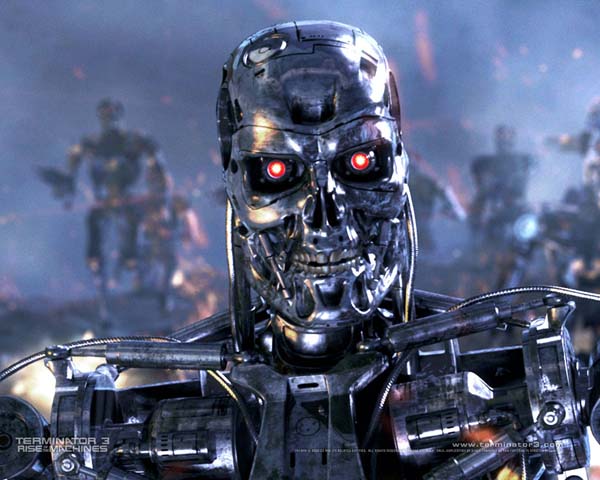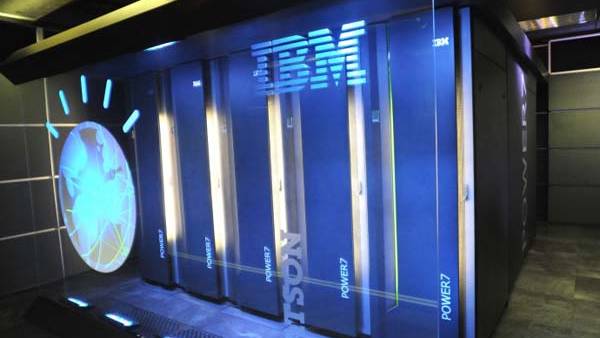Man Versus Machine: IBM’s ’Watson’ computer takes on humans
Source: reuters.com
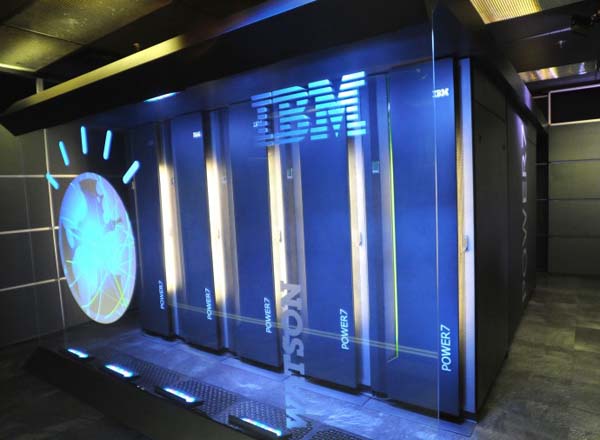
Man ties machine on Day 1 of "Jeopardy!" showdown
A man-versus-machine showdown on popular U.S. quiz show "Jeopardy!" ended in a tie on the first day of a three-day challenge, when an IBM computer showed off its knowledge of the Beatles, as well as a few glitches.
The machine, dubbed Watson after International Business Machines Corp’s former president Thomas Watson, is the computer and software maker’s latest display of its expertise in advanced science.
Watson’s ability to understand language and solve problems through complex algorithms makes it even more evolved than Deep Blue, an IBM chess-playing supercomputer that beat world champion Garry Kasparov in 1997.
"Any time you feel the pain, hey -- this guy -- Don’t carry the world upon your shoulders," was one clue posed by host Alex Trebek on Monday’s show.
"Who is Jude?" answered Watson, following the show’s trademark question-as-an-answer style.
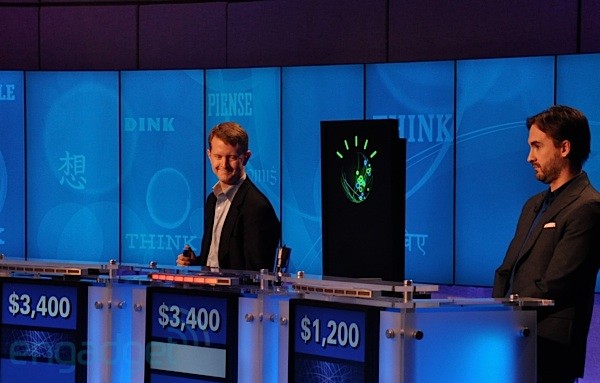
It also gave correct responses to clues about the Italian Renaissance artist Michelangelo and U.S. Olympic swimming champion Michael Phelps.
But Watson also made some errors, coming up with the wrong Latin word for "terminal" and repeating another contestant’s mistake because it can’t interact with other players.
In an earlier practice session, it mistakenly named Beethoven instead of actor and musician Jamie Foxx, prompting contestant Brad Rutter to quip: "I get the two mixed up all the time." Watson didn’t laugh, revealing what some say is another flaw -- the lack of a sense of humor.
At the end of Monday’s half-hour show, Watson and Rutter, who has in previous appearances won a total of $3.3 million, were tied with $5,000 each.
In third place with $2,000 was Ken Jennings, who won 74 games in a row during the show’s 2004-2005 season.
The final showdown airs on Wednesday, with contestants vying for a grand prize of $1 million. IBM plans to donate all of Watson’s winnings to charity.
IBM spends around $6 billion a year on research and development. An unspecified part of that goes to what it calls "grand challenges," or big, multiyear science projects such as Watson and Deep Blue.
IBM executives have said Watson’s linguistic and analytical abilities may eventually help develop new products in areas such as medical diagnosis.
Article from: reuter.com
How IBM’s Watson supercomputer wins at Jeopardy, with IBM’s Dave Gondek
Video from: YouTube.com
Smarter Than You Think: What Is I.B.M.’s Watson?
By Clive Thompson | NYTimes.com
“Toured the Burj in this U.A.E. city. They say it’s the tallest tower in the world; looked over the ledge and lost my lunch.”
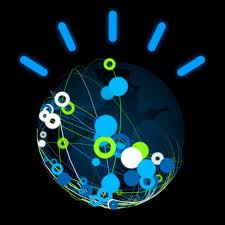 This is the quintessential sort of clue you hear on the TV game show “Jeopardy!” It’s witty (the clue’s category is “Postcards From the Edge”), demands a large store of trivia and requires contestants to make confident, split-second decisions. This particular clue appeared in a mock version of the game in December, held in Hawthorne, N.Y. at one of I.B.M.’s research labs. Two contestants — Dorothy Gilmartin, a health teacher with her hair tied back in a ponytail, and Alison Kolani, a copy editor — furrowed their brows in concentration. Who would be the first to answer?
This is the quintessential sort of clue you hear on the TV game show “Jeopardy!” It’s witty (the clue’s category is “Postcards From the Edge”), demands a large store of trivia and requires contestants to make confident, split-second decisions. This particular clue appeared in a mock version of the game in December, held in Hawthorne, N.Y. at one of I.B.M.’s research labs. Two contestants — Dorothy Gilmartin, a health teacher with her hair tied back in a ponytail, and Alison Kolani, a copy editor — furrowed their brows in concentration. Who would be the first to answer?Neither, as it turned out. Both were beaten to the buzzer by the third combatant: Watson, a supercomputer.
For the last three years, I.B.M. scientists have been developing what they expect will be the world’s most advanced “question answering” machine, able to understand a question posed in everyday human elocution — “natural language,” as computer scientists call it — and respond with a precise, factual answer. In other words, it must do more than what search engines like Google and Bing do, which is merely point to a document where you might find the answer. It has to pluck out the correct answer itself. Technologists have long regarded this sort of artificial intelligence as a holy grail, because it would allow machines to converse more naturally with people, letting us ask questions instead of typing keywords. Software firms and university scientists have produced question-answering systems for years, but these have mostly been limited to simply phrased questions. Nobody ever tackled “Jeopardy!” because experts assumed that even for the latest artificial intelligence, the game was simply too hard: the clues are too puzzling and allusive, and the breadth of trivia is too wide.
With Watson, I.B.M. claims it has cracked the problem — and aims to prove as much on national TV. The producers of “Jeopardy!” have agreed to pit Watson against some of the game’s best former players as early as this fall. To test Watson’s capabilities against actual humans, I.B.M.’s scientists began holding live matches last winter. They mocked up a conference room to resemble the actual “Jeopardy!” set, including buzzers and stations for the human contestants, brought in former contestants from the show and even hired a host for the occasion: Todd Alan Crain, who plays a newscaster on the satirical Onion News Network.
Technically speaking, Watson wasn’t in the room. It was one floor up and consisted of a roomful of servers working at speeds thousands of times faster than most ordinary desktops. Over its three-year life, Watson stored the content of tens of millions of documents, which it now accessed to answer questions about almost anything. (Watson is not connected to the Internet; like all “Jeopardy!” competitors, it knows only what is already in its “brain.”) During the sparring matches, Watson received the questions as electronic texts at the same moment they were made visible to the human players; to answer a question, Watson spoke in a machine-synthesized voice through a small black speaker on the game-show set. When it answered the Burj clue — “What is Dubai?” (“Jeopardy!” answers must be phrased as questions) — it sounded like a perkier cousin of the computer in the movie “WarGames” that nearly destroyed the world by trying to start a nuclear war.
This time, though, the computer was doing the right thing. Watson won $1,000 (in pretend money, anyway), pulled ahead and eventually defeated Gilmartin and Kolani soundly, winning $18,400 to their $12,000 each.
“Watson,” Crain shouted, “is our new champion!”
It was just the beginning. Over the rest of the day, Watson went on a tear, winning four of six games. It displayed remarkable facility with cultural trivia (“This action flick starring Roy Scheider in a high-tech police helicopter was also briefly a TV series” — “What is ‘Blue Thunder’?”), science (“The greyhound originated more than 5,000 years ago in this African country, where it was used to hunt gazelles” — “What is Egypt?”) and sophisticated wordplay (“Classic candy bar that’s a female Supreme Court justice” — “What is Baby Ruth Ginsburg?”).
By the end of the day, the seven human contestants were impressed, and even slightly unnerved, by Watson. Several made references to Skynet, the computer system in the “Terminator” movies that achieves consciousness and decides humanity should be destroyed. “My husband and I talked about what my role in this was,” Samantha Boardman, a graduate student, told me jokingly. “Was I the thing that was going to help the A.I. become aware of itself?” She had distinguished herself with her swift responses to the “Rhyme Time” puzzles in one of her games, winning nearly all of them before Watson could figure out the clues, but it didn’t help. The computer still beat her three times. In one game, she finished with no money.
“He plays to win,” Boardman said, shaking her head. “He’s really not messing around!” Like most of the contestants, she had started calling Watson “he.”
[...]
Read the full article at: nytimes.com
IBM’s Watson supercomputer destroys all humans in Jeopardy
Video from: YouTube.com
